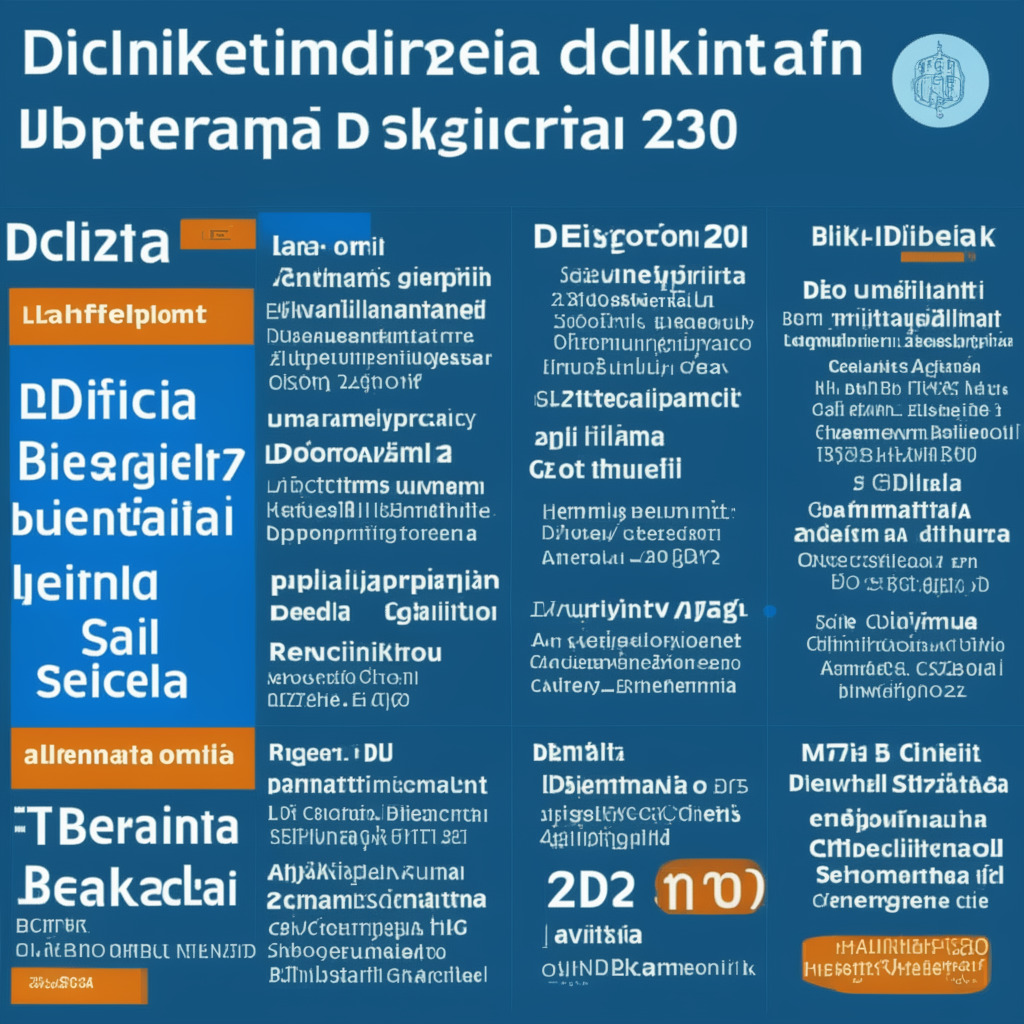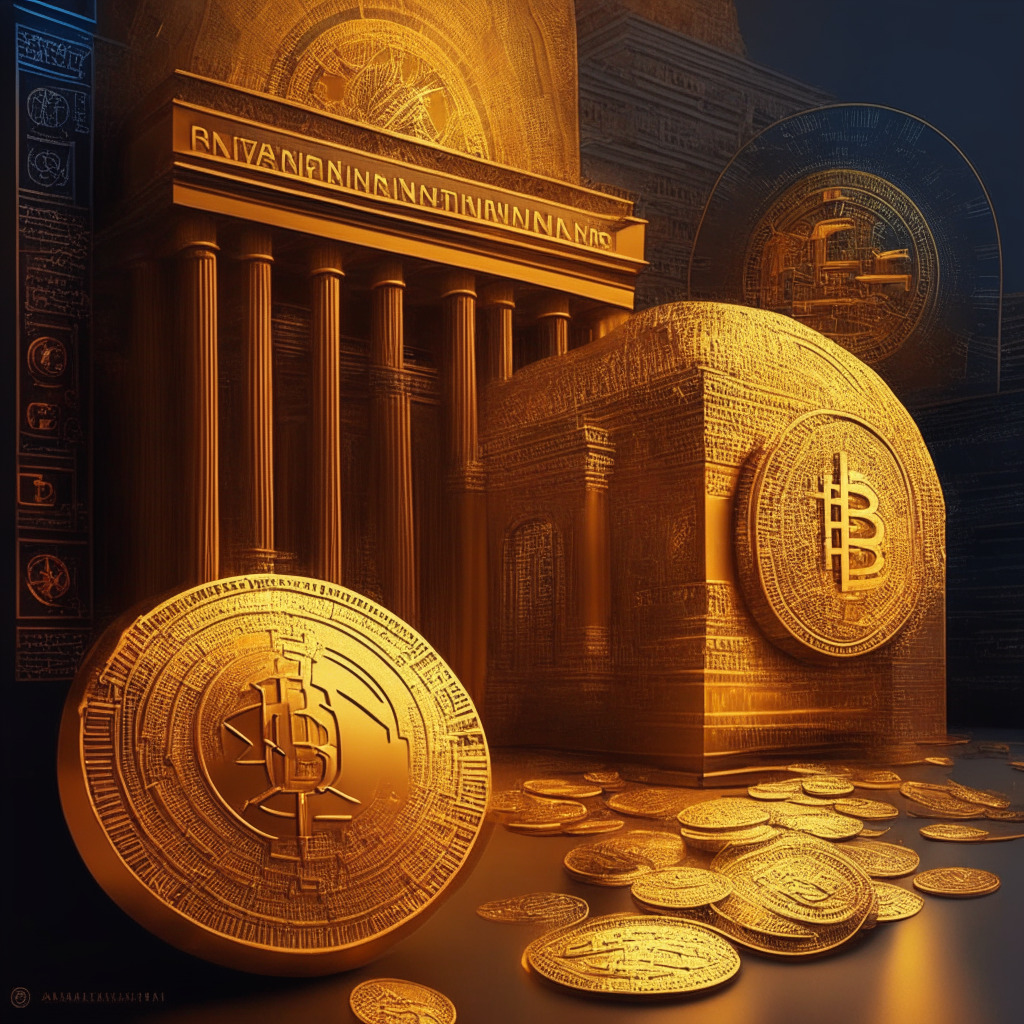The UK Parliament’s Treasury Committee report suggests regulating unbacked cryptocurrencies like gambling, opposing the government’s ambition to make the UK a global crypto hub. The move raises questions about the country’s ability to foster a thriving digital asset ecosystem amidst stringent regulations.
Search Results for: Backed Finance
Unbacked Cryptocurrencies: Ponzi Schemes or Legit Investments? Central Bank’s Dilemma
Central Bank of Ireland Governor Gabriel Makhlouf likens unbacked cryptocurrencies to a “Ponzi scheme” and emphasizes the importance of differentiating between ‘backed’ and ‘unbacked’ crypto. The recent approval of MiCA by the European Parliament marks a significant step in cryptocurrency regulation, acknowledging the potential of cryptocurrencies while protecting consumers and investors from unwarranted risks.
Europe’s First Compliant DeFi Bank and Stablecoin: Unstoppable Finance Embraces MiCA Rules
Berlin-based fintech startup Unstoppable Finance is preparing to launch Europe’s first compliant “DeFi-native bank” and a fiat-backed Euro-pegged stablecoin in line with the European Union’s MiCA guidelines. The team previously established Germany’s first regulated crypto exchange and founded Unstoppable Finance in 2021, known for its Ultimate DeFi wallet.
Canton Network: Revolutionizing Finance or Privacy Concerns Looming? Pros & Cons Explored
Digital Asset recently announced plans to launch the Canton Network, a privacy-enabled interoperable blockchain network for institutional clients. Backed by major industry players, this decentralized infrastructure aims to interconnect applications, streamline cross-chain transactions, and address privacy, decentralization, and compliance concerns within the financial market.
Zimbabwe’s Gold-Backed Digital Token: Stability vs Decentralization Debate in Crypto World
The Reserve Bank of Zimbabwe (RBZ) has invited individuals and institutions to subscribe to its gold-backed digital token, aiming to combat Zimbabwe’s volatile local currency. This move highlights the conflict between traditional finance and digital currencies and raises questions regarding the intersection of these approaches.
Tokenization Trend Booms: $220M Market Cap, DeFi Integration, and Regulatory Challenges
Tokenization of financial securities on the blockchain is gaining momentum, with a market cap of over $220 million. Firms like Matrixport, Backed Finance, Ondo, and Franklin Templeton create tokenized government bonds and ETFs, predominantly on Ethereum. This trend enables new opportunities, improved lending efficiency, and promises innovation in finance; however, it requires a supportive regulatory landscape to reach its potential.
Blockchain Revolution: Unraveling the Power of Web3 for Financial Sovereignty and Data Privacy
“Blockchain is steering a ‘digital sovereignty’ revolution through the principle of decentralization and Web3. It aims to disrupt conventional infrastructure and restore trust in traditional institutions by combating grave cybersecurity threats and enabling control over personal data. Moreover, blockchain products like cryptocurrency and tokenization could potentially transform our digital interactions and transaction methods.”
Kennedy’s Bold Crypto Agenda: An Independent Run for Presidency Powered by Bitcoin
“Robert F. Kennedy Jr., a Bitcoin supporter, announced his independent candidacy for presidency. Among his platforms is a positive stance on cryptocurrencies, including campaign finance via Bitcoin, tax exemptions for Bitcoin investors, and potential backing of the U.S. dollar with Bitcoin.”
Cyprus’ Crackdown on Unregulated Cryptocurrency: Necessary Protection or Innovation Stifle?
“Cyprus proposes to penalize Crypto Asset Service Providers (CASPs) operating without licenses, with penalties up to €350,000 or five years imprisonment. This rule aims at uniformity in the European Union and protecting investors from financial hazards associated with illicit activities and money laundering.”
Navigating New Waters: First European Film Funded by NFTs Stirs the Cinematic World
‘The Quiet Maid’, the first European feature film funded through NFT sales, represents a new era of blockchain technology in the creative industry. Despite uncertainties surrounding NFTs, this film’s funding model garners worldwide attention. The evolution of blockchain in filmmaking is yet to unfold.
Unmasking Shadows: Blockchain’s Flashy Evolution Amidst Ethical Challenges and Regulatory Needs
This article discusses the complex landscape of blockchain technology. It highlights misuse of power in crypto markets, efforts to foster secure trading conditions, potential tokenization of debt securities, the implication of decentralized prediction markets, and calls for comprehensive regulation and ethical self-governance in the crypto field.
Growth Pains or Market Crash? Chainalysis Layoffs and the Struggling Crypto Market
Chainalysis, a leading blockchain analytics firm, has laid off another 15% of its employees due to deteriorating market conditions. Despite these lay-offs, the company remains optimistic about long-term success, focusing on optimizing expenses and fostering trust in blockchain among governmental and financial institutions. The current bearish market atmosphere, however, is also impacting the reception and demand for new products like futures ETFs.
The Persevering Investment Fervor in Blockchain Amid Market Volatility
Despite market trends, the crypto and blockchain sector continues to attract significant investments, particularly in fields like blockchain analytics, gaming, and crypto privacy. Venture capitalists are supporting promising startups like Bubblemaps, CoinScan, Hinkal Protocol, and Mythic Protocol, each bringing unique value to the industry. Market volatility remains a concern yet growth and adoption Momentum persists.
Scaling the Regulatory Walls: Challenges and Solutions for Digital Asset Markets
The World Federation of Exchanges (WFE) proposed six measures to ensure the safety and sustainability of digital asset markets. These include clear segregation of market infrastructure functions and establishing systems to manage user risks. The WFE also emphasized the need for crypto exchanges to demonstrate full backing of user assets and be sufficiently regulated.
Navigating the Surge in AI: Evaluating Business Intelligence Platform AlphaSense
AlphaSense, an AI platform focused on business intelligence and search, has raised its valuation from $1.7 billion to $2.5 billion. The firm offers insights-as-a-service, delivering perceptive business and finance analytics, with its tailored approach promising more specific insights in the crypto and blockchain world. Despite the high-risk, high reward nature of the AI sector, AlphaSense plans to strategically position itself in the B2B generative AI sector.
Navigating Complex Debt: Founder of DeFi Protocol Curve’s Multi-Million Dollar Maneuver
Michael Egorov, founder of DeFi protocol Curve, employed a strategy to settle his extensive obligations on Aave. He deposited millions of CRV as collateral on a lending platform, and borrowed Curve’s crvUSD stablecoin, which he exchanged for USDT to clear his Aave debt. Despite significant outstanding debt across several DeFi platforms, Egorov has been proactive in lessening his debt and usage rate.
PayPal’s Integration with Crypto.com: Pioneer Move or Futile Endeavor?
The cryptocurrency exchange Crypto.com and financial powerhouse PayPal have partnered, with Crypto.com becoming an exchange of choice for PayPal’s stablecoin, PYUSD. By facilitating PYUSD trading pairs, Crypto.com aims to connect over 80 million users to new crypto innovations while supporting PayPal’s extensive network.
Unraveling PayPal’s Plan: Crypto.com, Stablecoin and the Future of Cryptocurrency Markets
“PayPal has plans to make Crypto.com the preferred platform for their USD-backed stablecoin, PYUSD. Despite skepticism around adoption and seamless trade, this move could mark a significant stride towards widespread crypto adoption in traditional finance.”
Unraveling Stablecoins: Booming Assets or Impending Crisis?
“This report by the United States Federal Reserve Banks reveals the potential impact of stablecoins on the economy. Highlighting the similarity between stablecoins and money market funds, it warns of the vulnerabilities these coins face during market downturns. Issues like risky backing collateral and erosion of investor confidence can lead to substantial losses.”
MoneyGram’s Dive into Non-Custodial Crypto Wallets: A Game Changer or a Potential Pitfall?
MoneyGram, a global payment processing giant, plans to launch non-custodial crypto wallets by Q1 2024, leveraging the Stellar network. The wallet promises no processing fees till June 2024 and includes transaction safety measures. However, the single network operation and reliance on centralized compliance screenings could face potential drawbacks and privacy threats.
Deciphering the Unprecedented Alliance of Swarm and Wrapped.com in the DeFi Universe
The partnership between Wrapped.com and Swarm simplifies the conversion process across different blockchain networks, bridging industry divides. This collaboration infuses cross-chain technology with a custody-based solution, significantly influencing DeFi markets and rendering cross-chain crypto partnerships accessible to a broader audience. This may attract more institutional investments, marking a significant step in shaping the blockchain future.
Dwindling Stablecoin Dominance: A Strategic Investor Shift or a Market Trend?
“Stablecoins have experienced a 17-month decline, losing market dominance by 11.6%, with a total sector drop of $124 billion. Despite this, stablecoin trading volume has grown by 10.9%. Some propose investors are cashing out stablecoins to diversify into traditional assets due to rising yields in fixed-income securities and cryptocurrencies. This pivot raises questions about the future behavior of the crypto market.”
PayPal’s Venmo and the Stalled Adoption of PYUSD Stablecoin: Analysis and Future Implications
“PayPal’s mobile payment platform, Venmo, has begun offering its Ethereum-based stablecoin, PYUSD, marking a significant step toward integrating cryptocurrency with mainstream finance. Despite its robust structure and support, PYUSD’s adoption has been slow, likely due to competition and regulatory contradictions.”
Hong Kong’s Crypto-Friendly Climate: Sustainable Support or Strategic Risk?
In the Web3 Transitions Summit, Vitalik Buterin, co-founder of Ethereum, urges caution for those considering establishing crypto operations in the amicable environment of Hong Kong. He demands certainty about city-state’s ability to maintain the harmony between traditional finance and emerging financial trends amid potential future regulatory shifts.
Layer N’s Potential Revolution: Spotlight On the $5 Million Seed Funding and the Future of Ethereum
“The Layer N announced its $5 million seed funding round, led by Peter Thiel’s Founders Fund and dao5. Layer N intends to offer a more efficient layer for Ethereum, characterized by high transaction throughput and lower transaction fees, aiming to contest traditional financial networks. Questions arise whether it can overcome Ethereum’s inherent challenges.”
Easing Crypto Entry: The Struggle for Streamlined Onboarding While Retaining Security in Blockchain Applications
Sui Network has integrated Google, Facebook, and Twitch logins into its DApps (decentralized applications), aiming to streamline the onboarding process on Web3 and eliminate the need for managing an external crypto wallet. The new zkLogin (Zero Knowledge login) feature ensures user privacy and security, essential characteristics in Blockchain applications.
Crackdown on NFTs: SEC Targets Stoner Cats 2 for Unregistered Securities Allegations
“The Securities and Exchange Commission targeted Stoner Cats 2’s NFT project for allegedly amassing $8 million through unregistered sales. The company purportedly linked the show’s success to its NFTs’ value, sparking investors’ profit expectations and resulting in accusations of unlawful offerings. Amidst an ongoing crackdown, this highlights the need for stricter regulatory frameworks in the NFT world.”
Digital Yuan: China’s Leap Into Blockchain Salary Payments and Its Global Implications
A growing number of Chinese companies are switching to digital yuan for salary payments. The Zhongkai High-tech Industrial Development Zone, in partnership with the ICBC, has become the first city company to pay its employees, including CCP officials, in digital yuan. This initiative encourages digital yuan adoption and broadens its application in the public sector, helping to tackle the longstanding US dollar dominance.
Unraveling the Regulatory and Ethical Quagmires: Navigating through the Crypto Landscape
A U.S. federal judge delayed a sentencing hearing for radio host Ian Freeman, who allegedly created an illegal Bitcoin exchange used by scammers. Meanwhile, the DeFi Education Fund contests a patent claim by tech company True Return Systems. Also, DigiFT’s dETH0924 provides up to 4% APR, boosting Ethereum’s PoS mechanism, while crypto infrastructure provider Qredo integrated Circle’s USDC stablecoin into its wallet.
SushiSwap Expands to Aptos: A Reworked View on Decentralized Exchange Landscape
“SushiSwap, a reputed decentralized digital asset exchange, has expanded its operations to Aptos, a layer 1 blockchain, marking its first integration outside Ethereum Virtual Machine (EVM) compatibility. The move aims to bolster SushiSwap’s multi-chain network strength while providing fresh capital to Aptos, helping it compete against other non-EVM blockchains.”
South Korea’s Mirae Asset Securities Collabs with Polygon Labs to Tokenize Assets: Will this Disrupt the Traditional Financial Landscape?
Mirae Asset Securities collaborates with Polygon Labs to facilitate tokenization and Web3 integration with traditional finance. This alliance aims to create an infrastructure for issuing and transacting tokenized securities – translating tangible assets into blockchain-backed cryptographic tokens. The partnership anticipates reshaping capital markets by eliminating intermediaries, promising a more efficient, transparent, and inclusive global financial system.
Redefining Value: The Digital Frontier of Tokenized Real-World Assets
“Tokenized real-world assets are becoming mainstream with firms like Coinbase, Circle, and Aave forming the Tokenized Asset Coalition to promote the transition to decentralized finance. Predictions estimate tokenized assets reaching $16 trillion by 2030. Meanwhile, key financial entities globally are considering or offering crypto-related services, signifying a pivotal switch in financial systems.”































